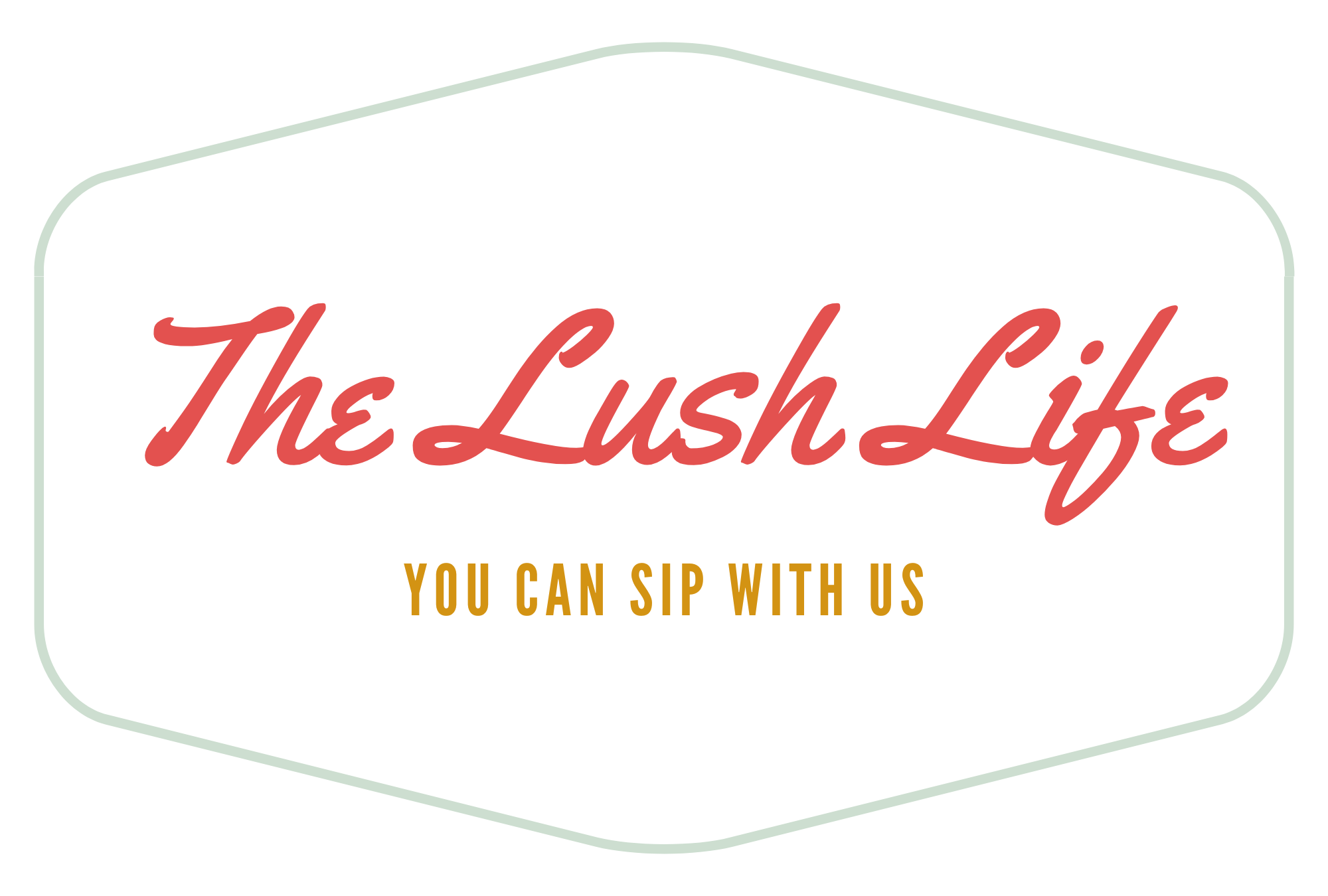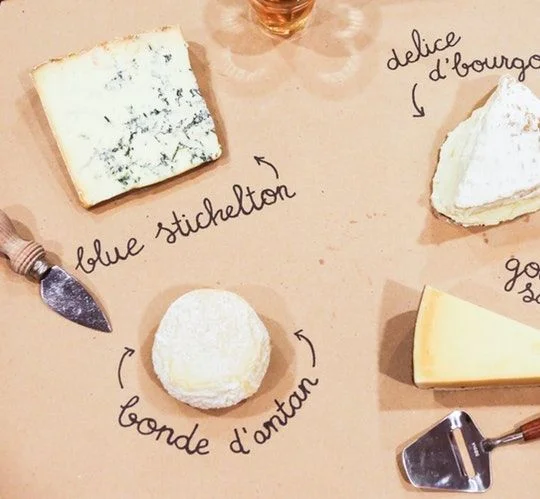Everything You Need To Know About Sustainable, Biodynamic, and Organic Wine
The beautiful biodynamic Clos d'Ora vineyards of Gerard Bertrand in France's Languedoc region are still farmed by mules.
More people today than ever are fully on the wellness train. We stock our medicine cabinets with natural supplements, probiotics, and essential oils; we buy only non-GMO food products; and we’re on a first name basis with the farmers at our local greenmarket. Quinoa bowls and green juice have replaced burgers and fries as a favorite treat, and we rarely travel anywhere without our yoga mats (or at least our fave meditation app!)...
Unfortunately, when it comes to wine, many of us don’t give our wine selection the conscious vetting that we give the rest of our lifestyle! But have no fear, The Lush Life is here, to break down the definitions of biodynamic, sustainable, or organic wine. We are even covering vegan wine (yep, most wines aren’t vegan…. read on to find out why!). We want to empower you to make the best possible choices for your body, and the planet. With help from our guide, it’s easy being green!
ORGANIC WINE
Simply put, to be a certified organic wine, the wine needs to be made from vineyards that exclude use of synthetic chemicals: fertilizers, herbicides, fungicides and pesticides -- including genetically modified products. Farmers applying for organic wine certification have to keep tight records of their production practices, and they’re subject to site visits by inspectors from the certifying agency. The farmland has to be free of prohibited chemicals for a minimum of three years before it can qualify as a truly organic wine. Usually what this means is that their neighboring vineyards have to be organic as well! It’s easy for chemicals to blow over in the breeze, or affect the groundwater of a neighboring farm.
The requirements to become a certified organic wine vary from country to country. If you’re looking at U.S. wines, however, be aware that in order to earn that "USDA Organic" green seal, a wine only has to meet the requirements by 95%. Also, it’s important to remember that ‘organic’ is referring to the farming practices. Even if the grapes are farmed without synthetic chemicals, the it’s possible that synthetics may be used during the winemaking process. The technical term for an organic wine is actually ‘made from organic grapes.’
Keep in mind that there are many wonderful small family-owned wineries that are following organic wine practices but just aren’t certified. Why? Because obtaining that certification can be prohibitively expensive! It’s just not practical for every producer to jump through all the hoops, miles of red tape, and piles of cash to get that seal on their label. This is when it pays off to find a great local wine shop: the staff will be able to tell you if a winery is ‘practicing organic’ and just doesn’t have the ‘official’ certification.
Chemical-free organic and biodynamic vineyards are safe for children and animals to run around in!
BIODYNAMIC WINE
Biodynamic farmers follow all the organic criteria and then kick it up a notch. The key to understanding the biodynamic philosophy is that its disciples see the whole vineyard as an ecosystem where everything must remain in balance within the land and the universe. In biodynamic vineyards, the planting, sowing, and harvesting calendar is determined by the positions of the sun, moon, and planets. It’s a holistic approach where every organism contributes to the "circle of life." Is it woo woo? Yes. Do the wines generally taste extra vibrant and full of life? Also yes!
Natural compounds are created to treat the vineyards in solutions made from substances such as ground quartz, chamomile, and nettles that are then sprayed out over the vines. Animal products are an important component to this, and manure, horns and hooves may be incorporated. The idea behind this is that animals eat plants, then plants eat animals, and everything is a continuous cycle.
Even though it all sounds a bit mystical, there’s no denying that biodynamic wines taste particularly alive and vital! Nobody really knows why... but try one for yourself and you’ll see how delicious they can be.
The beautiful vineyards used for Rotari Wines are sustainably farmed.
SUSTAINABLE WINE
There is one more category that every eco-conscious drinker will want to be aware of: sustainable wines. In this category, there is a care and concern for the community and future as well as the land itself. Sustainable wines follow the "3 E’s":
• Environmentally Sound
• Socially Equitable
• Economically Feasible
Sustainable wineries may follow many of the same principles used for biodynamic and organic wine, but there is much more flexibility to choose what works best for them. For example, a synthetic pesticide or genetically modified fertilizer may be used if that’s more economically feasible (ie, you have a certain type of mold that’s ONLY treatable with a synthetic that’s not allowed in organics? If you don’t treat it, you won’t even have a crop, or wine to sell, so sustainable wineries have more freedom to do what they need to survive- even if it may preclude them for qualifying as an organic wine.) Decisions about energy or water conservation may be made with the community as a whole in mind, not just their land.
Also, sustainable winemaking covers things like: is the winery structure itself sustainable? If they are using solar or wind power, or biodegradable cleaning products, and even if they offer health insurance to their employees--- all of these are part of sustainability in wine!
VEGAN and VEGETARIAN WINE
Wine is made from grapes, but that’s not all it’s made of! Animal products are routinely used in the winemaking process. Some producers are labeling their wine vegetarian or vegan, however many are not. The most common use of animal products is in the filtering and fining steps. Wine has a lot of proteins, dead yeast cells, and other matter floating around in that barrel, and over time it will naturally settle and you can ‘rack’ the clean wine off the top, and leave the sediment behind. However, the natural settling process takes a long, long time--- and in modern winemaking, that’s not always practical. So, animal products are an efficient way to speed up the process.
If you are vegan, check out the Barnivore Vegan Alcohol Directory, which is a searchable database and a good tool to find out if your favorite wine is vegan. They have a mobile app too!
Journalist and Master of Wine Anne Krebiehl published an awesome resource in Wine Enthusiast, outlining some of the most common non-vegetarian wine additives and why they are used, which we are sharing below! If you’re curious, continue reading to see exactly what might be hiding in your wine glass. Follow Anne on Twitter here.
Anne’s Vegetarian/Vegan Cheat Sheet:
Egg whites
The simplest, most old-fashioned way of fining is still practiced at many Bordeaux châteaux. Red wines made from Cabernet Sauvignon are full of heavy, astringent tannins when still in the barrel. By adding natural egg whites to the barrels, stirring and allowing them sink to the bottom, the harshest tannins are removed.
This technique works because young tannins have a natural negative ionic charge, while the egg whites have a positive charge. As they are mixed in the barrel, the negatively charged tannins bind to the positively charged egg whites. They then sink to the bottom, and the clear, less-tannic wine can be run off. Powdered egg whites can also be used.
Verdict: Vegetarian, but not vegan.
Casein
A protein found in milk, casein is used in winemaking to give white wines a brilliant clarity and remove oxidative taint. Sometimes, skim milk is used to achieve this, like with very clear Sauvignon Blancs.
Verdict: Vegetarian, but not vegan.
Gelatin
A protein derived from animal hides and bones, gelatin can be used on both red and white wines. Red wines can gain suppleness, while whites can attain brighter color, though often at the expense of tannins.
Verdict: Neither vegetarian nor vegan.
Isinglass
Derived from the swim bladders of sturgeon and other fish, isinglass was used far more widely in the past. It gives white wines brilliant clarity by removing solids and excess color.
Verdict: Neither vegetarian nor vegan.
Chitosan
A carbohydrate, chitosan is derived from the shells of crustaceans. It has a positive ionic charge and is used to remove excess color and phenols from white wines.
Verdict: Neither vegetarian nor vegan.
Does that mean that all wines labeled ‘vegan’ are unfined?
Not necessarily. There are plenty of fining agents that are not derived from animals that can be used to fine vegan wines.
Poly-vinyl-poly-pyrrolidone (PVPP)
PVPP is a man-made plastic substance which absorbs excess phenols and colors. PVPP is often used to give rosé wines their elegant pallor.
Verdict: Vegetarian and vegan.
Bentonite
Bentonite is purified clay and has a negative charge. It binds protein colloids in white and rosé wines, and also makes them heat-stable. Activated charcoal can also remove prominent off flavors, but can strip wine of other desirable ones.
Verdict: Vegetarian and vegan.
What about farming?
Some vegans go beyond the winemaking process and also look to see if animal products were used in farming. They object to animal-derived fertilizers like bone meal (from dead livestock) or fish emulsion (from fish waste) in favor of plant-based composts.







